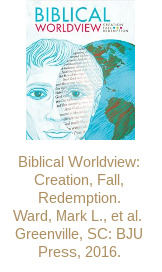Review: Finding Your Child's Way on the Autism Spectrum
Marylu and I have some longtime Christian friends, a Christian couple from the Chicago area. We were often puzzled by the husband’s behavior patterns—and so was he—until he was finally diagnosed with Asperger’s Syndrome. After his diagnosis, he began attending an Asperger’s support group. His behavior improved; he now monitors his responses and reactions.
Asperger’s Syndrome is part of the Autism Spectrum. Autism varies from high-functioning to low functioning, and research is ongoing. But the question arises, “How should Christian parents bring up their autistic children?”
Dr. Laura Henrickson points the way in her 144 page book, Finding Your Child’s Way on the Autism Spectrum. Hendrickson is uniquely qualified to write such a book: she had been a practicing psychiatrist, believes in biblical counseling (with an emphasis on personal responsibility), and successfully raised her autistic son. She views autism as a type of personality—with both pros and cons. And she recognizes the contributions autistic people have and are making in society, referring often to autism’s chief contemporary spokesperson, Dr. Temple Grandin, who is one of many success stories.



Discussion